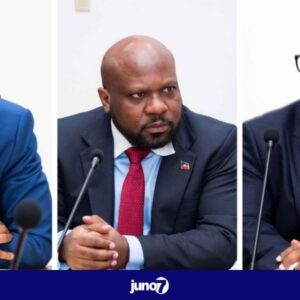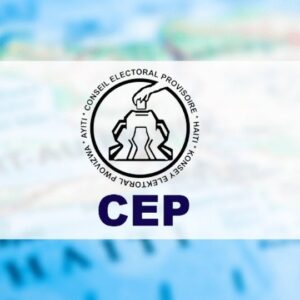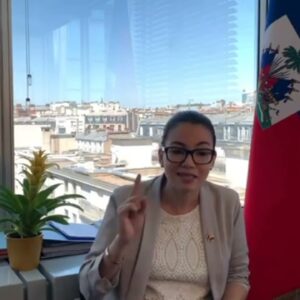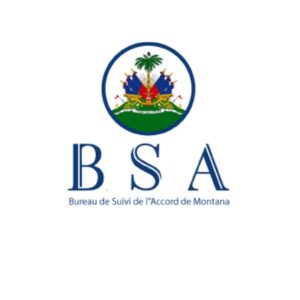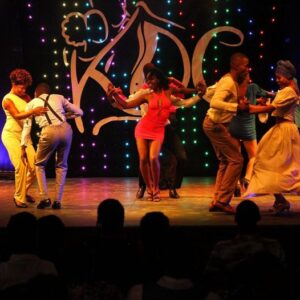Haiti, sadly become the laughing stock of the world, recalls the laments of an army officer desperately requesting at least two helicopters to fight against banditry. The situation reaches an ironic climax this week with the news that helicopters have been given as a gift to Kenya to help Haiti. This irony is barely believable to the point that Ariel laughs.
Saturday February 3, 2024 ((rezonodwes.com))
As the February 7 deadline approaches, Haiti finds itself in a period of political uncertainty exacerbated by the continued presence of Ariel Henry in power. The latter, who had promised elections in 2023, did not honor his commitment, leaving the nation wondering what the scenario will be after this crucial date.
Following the assassination of former president Jovenel Moïse in July 2021, Ariel Henry was supposed to organize elections in November of the same year. However, 30 months later, no elections have taken place. Supported without reservation by the international community, in particular by the United States, and in defiance of Haitian laws, Henry maintains a contested power, accentuating concerns about the political stability of the country.
Monarch Henry, imposed on the Haitian people in July 2021, and who is not beyond suspicion, has consolidated his power by assuming the roles of Prime Minister and President of the Republic, without parliamentary counterweight. Critics even compare him to a dictator, highlighting his involvement in the illegal appointment of judges to the Court of Cassation.
“In a democracy, the balance between powers is essential to ensure the stability and legitimacy of the government”underlines the professor of political science, Dr. Jean-Luc Bellerive.
The rise of criminal gangs, loyal denounced allies of the Prime Minister and his collaborators, is creating a climate of national insecurity. The recent kidnapping of six nuns highlights the vulnerability of citizens in the face of this persistent threat. The Haitian ecclesiastical authorities and the Vatican strongly condemned this heinous act, increasing the pressure on the understudy government of Ariel Henry.
The heightened violence perpetrated by gangs in Haiti is, according to many protesters across the Republic, deliberately planned. The basis for this claim is brutal police repression of unarmed protesters, while gangs exercise effective control over law enforcement. This complex reality raises legitimate concerns about persistent impunity, particularly illustrated by the lack of arrests of gang leaders over the past thirty months in Haiti.
Testimonies abound regarding the perceived complicity between certain sectors of the police and gangs, the latter being used as instruments of coercion against any form of opposition to the government of Ariel Henry.
“Criminal acts compromise social peace and undermine citizens’ trust in government authorities”underlines the theologian and ethics expert, Dr. Marie-Claire Laurent.
Ariel Henry’s failure to respect electoral promises raises questions about the legitimacy of his retention in power. The situation is exacerbated by the growing gang occupation, which some believe could be used as an excuse to avoid elections and extend Henry’s term in office.
“Respecting electoral commitments is fundamental to maintaining people’s confidence in the democratic process”affirms the professor of constitutional law, Dr. Pierre Desroches.
The U.S. initiative to clean up Haitian cities, through the USAID-funded VIL project, raises questions about the United States’ real intentions in Haiti. Some speculate about possible interference under the pretext of humanitarian aid, with potential consequences for the country’s sovereignty.
“Foreign actions must be carefully scrutinized to preserve national autonomy and avoid any form of undue interference”insists the renowned political scientist, Dr. André Dubois.
As February 7 dawns, Haiti finds itself at a crucial turning point. Between unfulfilled electoral promises, a rise in gangs, and foreign initiatives raising questions, the Caribbean nation is navigating a climate of political and social uncertainty. The country’s political future remains hanging on a fragile balance, with potential implications for regional stability.
The Transparency International report has already evaluated the team in power, giving it a score of 17 out of 100. Such an evaluation leaves no room for any other explanation to justify the maintenance in place of this team which is struggling for 30 months to show itself. useful.

